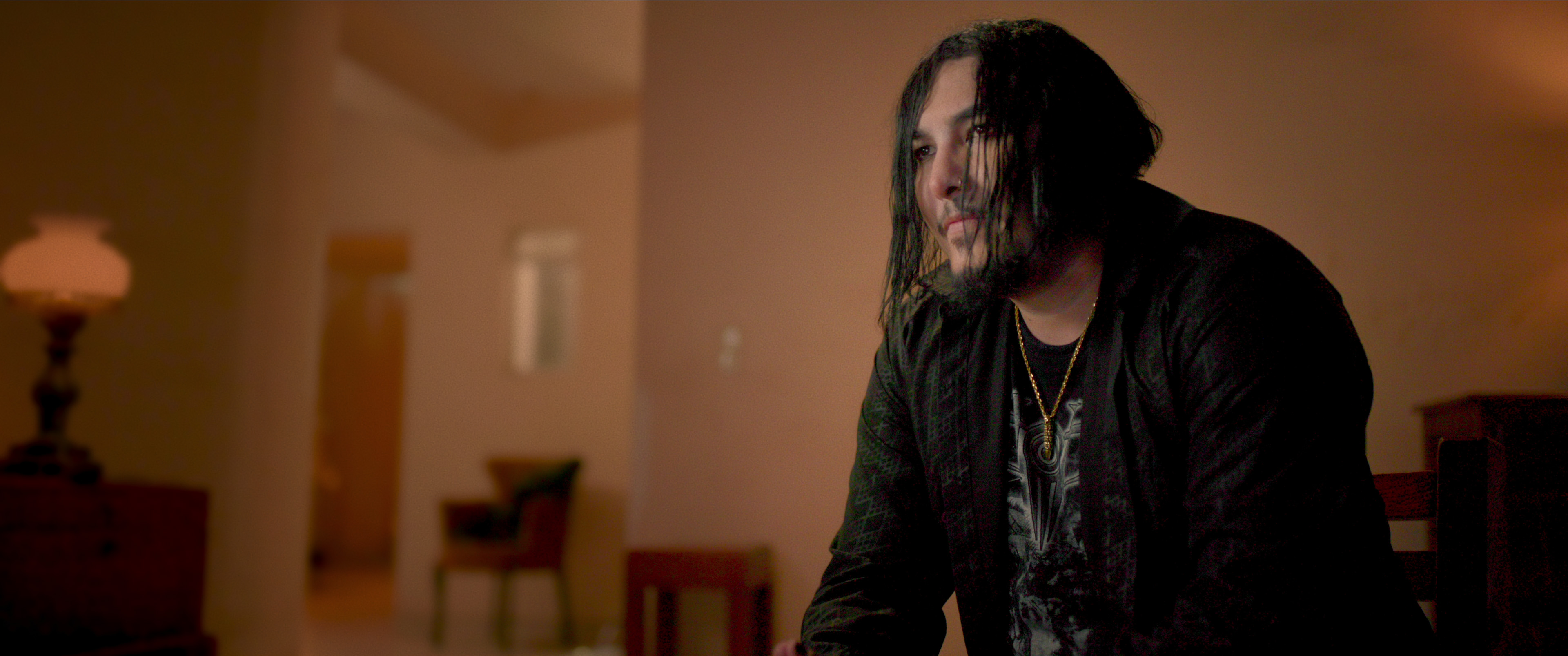‘Crime Scene: The Vanishing at the Cecil Hotel’ and the problem with internet sleuths

Photos courtesy of Netflix.
It was the summer of 2015. I was on a pseudo-vacation with my (future) in-laws, and we had rented riverfront cabins in a secluded area of Arkansas. We spent our days fishing and our nights enjoying each other’s company. However, when we headed to our individual rooms for the night, there wasn’t much to do for those stuck in that “tired but not sleepy” state of mind. Luckily, I brought along my iPad, so I engaged in one of my favorite activities: scaring myself.
Ever since I was young, I’ve loved watching scary movies. I’ve always been a fan of ghost stories and the horror genre in general. I was able to get my fix around the time of that fishing trip by surfing the “creepy” section of Reddit. Many of the posts were ridiculously fake and manufactured, but every once in a while, I would come across something genuinely frightening—or at least extremely unsettling.
It was then—lying in a secluded cabin, surrounded by the dark of the woods, wondering what might be outside waiting to sneak in through a window—that I was first introduced to the sad story of Elisa Lam.
Elisa Lam
To be fair, by the time I had come across her story, Elisa Lam had already taken the internet by storm. Lam, a student at the University of British Columbia, had traveled to Los Angeles alone to view the city and spread her wings. After being in LA for a couple of days, she checked into the Cecil Hotel.
Lam disappeared during her stay in early 2013. She and her family had been in daily communication during the trip; however, she did not call her parents Feb. 1, the day she was scheduled to check out of the Cecil Hotel. They subsequently contacted the Los Angeles Police Department to report her missing.
Elisa had a noted history of depression and was previously diagnosed as bipolar. Hence, law enforcement and the family discussed the possibility of those issues playing a part in her disappearance. Regardless, the hotel staff and a local bookstore owner noted she appeared in good spirits the day before her planned departure.
After weeks of investigating, the LAPD was at a dead end. Consequently, they released hotel surveillance footage from Jan. 31: a recording of her acting strangely in one of the Cecil Hotel’s elevators. That was the video I saw the night in that cabin, and like so many others, the footage initially made my mind run in a million different directions.
The Cecil Hotel
The Cecil Hotel began construction in 1924 and opened in 1927. At the time of its construction up and through the 1940s, it was seen as a fashionable locale and enjoyed an excellent reputation. However, that all began to change as the surrounding area transformed into what is now known as Skid Row—one of the largest conglomerates of transient individuals in the United States.
Over the decades, the Cecil Hotel became not only as a place for the down and out to find cheap shelter but also as a haven for the scourge of society to hide away from the outside world as they perpetrated their devious deeds. Richard “The Night Stalker” Ramirez was a resident for a few weeks during parts of his killing spree in the 1980s. Jack Unterweger made the Cecil Hotel his home in the summer of 1991, when prosecutors say he murdered three women.
Even more, the Hotel Cecil wasn’t merely known for its serial killer cohabitants. Throughout the decades, the hotel has had numerous patrons die on its property. According to Insider, many of those deaths were suicides.
With such a history of death and deviance, the hotel earned a bit of a reputation as an “evil” location of sorts. That reputation, coupled with Elisa Lam’s mysterious case, has led many to wonder if there was some sort of foul play—perhaps even of the supernatural variety.
Those suspicions were furthered Feb. 19, 2013, when Law was found naked and drowned in a water tank on the Cecil Hotel’s roof.
 The roof of the Cecil Hotel.
The roof of the Cecil Hotel.
Internet sleuths
With my limited background in the events surrounding Lam, I was interested in viewing the recent Netflix docuseries, Crime Scene: The Vanishing at the Cecil Hotel, which delves into the Cecil Hotel’s background and the coverage surrounding Lam’s disappearance, the investigation into her death and the discovery of her body.
I felt as though the docuseries as a whole was a bit below what I’ve come to expect from the standard Netflix true-crime offering. I viewed each of the four episodes in their entirety, and I did not come away impressed. Sure, there were some interesting interviews with hotel staff and law enforcement. But other than that, the series didn’t add much that wasn’t already available with a quick web search.
Moreover, there was an overemphasis on the internet and social media. Throughout the first installment, there is an odd pseudo-first-person account by someone playing the part of Lam as she types on a screen; however, it isn’t until later that the audience learns these are excerpts from her Tumblr. That’s just one example of the disjointed continuity of the entire series.
Perhaps most of my displeasure, though, stems from the series’ focus on “internet sleuths”—individuals who spend hundreds if not thousands of hours investigating unsolved cases online.
Now, to be fair, though, I’m not entirely against internet sleuths. They can definitely serve a purpose, and cases such as Abraham Shakespeare’s murder (among others) have shown that those individuals devoted to their cause can have a positive effect on the outcome of a criminal investigation. This docuseries simply seemed to focus on them too much, partly because there was no new revelation to relay, but also because so many individuals became totally engulfed by the Elisa Lam case.
Online investigators had theories all across the board. Every time one supposition was shot down, another one would rise to take its place. One of the more exciting ideas was a very eerie set of coincidences between the 2005 movie Dark Water and the facts of Lam’s disappearance and discovery. Other ideas—such as Lam being a biochemical weapon infected with tuberculosis by the government (due to a conspiracy related to the LAM-ELISA TB test)—took things into the realm of utter ridiculousness.
 Pablo Vergara.
Pablo Vergara.
Never mind the preposterous propositions, though: Real people suffered as a result of the internet sleuths’ resolve in their “investigation.” Pablo Vergara—a musician performing under the name Morbid—had his reputation attacked and his music career throttled because internet sleuths found his music on YouTube along with a 2012 video of him at the Cecil Hotel. He was swarmed by online hate resulting from accusations that he killed Lam, based mostly on his music videos and cryptic lyrics. Luckily for him, the Netflix documentary at least helped clear his name to some degree.
And herein lies a large portion of the problem. One thing the Elisa Lam docuseries does convey, whether purposefully or not, is the tunnel vision these web detectives can develop and their devastation when the thread they’ve followed for so long doesn’t lead anywhere. The devastation can create a sense of determination that blinds them to the reality of the situation: Sometimes, the most obvious, realistic explanation is the correct one.
The series ends by concluding that Lam most likely had a psychotic episode because of her underlying mental health issues and accidentally drowned. As one sleuth notes, when that reality is swept away, and you get in too deep, it’s easy to lose perspective.

Adam Banner
Adam R. Banner is the founder and lead attorney of the Oklahoma Legal Group, a criminal defense law firm in Oklahoma City. His practice focuses solely on state and federal criminal defense. He represents the accused against allegations of sex crimes, violent crimes, drug crimes and white-collar crimes.
The study of law isn’t for everyone, yet its practice and procedure seems to permeate pop culture at an increasing rate. This column is about the intersection of law and pop culture in an attempt to separate the real from the ridiculous.



